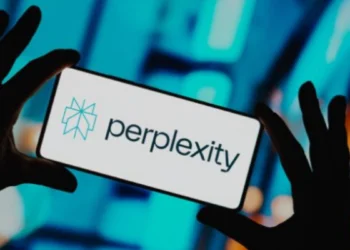Gemini is the result of large-scale collaborative efforts by teams across Google, including colleagues at Google Research.
Google Gemini was built from the ground up to be multimodal, which means it can generalize and seamlessly understand, operate across, and combine different types of information, including text, code, audio, image, and video.
Finally, Google Gemini has been launched on December 6, 2023. Sundar Pichai, CEO of Google and Alphabet, and Demis Hassabis, CEO and Co-Founder of Google DeepMind, have said that Gemini has the power to make AI more helpful for everyone and everywhere in the world.
Watch the complete YouTube video series on Google Gemini
Latest News: What is AI Alliance and Why IBM, Meta, Dell, NASA, and Others 50 Launched it
Gemini AI: 10 Amazing features
Google says Gemini is the result of large-scale collaborative efforts by teams across Google, including our colleagues at Google Research.
It was built from the ground up to be multimodal, which means it can generalize and seamlessly understand, operate across, and combine different types of information, including text, code, audio, image, and video.
1. Google Gemini: state-of-the-art performance
Google Gemini has a score of 90.0%. Gemini Ultra is the first model to outperform human experts on MMLU (massive multitask language understanding), which uses a combination of 57 subjects such as math, physics, history, law, medicine, and ethics for testing both world knowledge and problem-solving abilities.
The new benchmark approach to MMLU enables Gemini to use its reasoning capabilities to think more carefully before answering difficult questions, leading to significant improvements over just using its first impression.

2. Google Gemini: a Family of Highly Capable Multimodal Models
Gemini Multimodal Models exhibit remarkable capabilities across image, audio, video, and text understanding.
The Gemini family consists of Ultra, Pro, and Nano sizes, suitable for applications ranging from complex reasoning tasks to on-device memory-constrained use cases.
Evaluation on a broad range of benchmarks shows that our most-capable Gemini Ultra model advances the state of the art in 30 of 32 of these benchmarks, notably being the first model to achieve human-expert performance on the well-studied exam benchmark MMLU and improving the state of the art in every one of the 20 multimodal benchmarks examined.
Google Gemini’s new capabilities of cross-modal reasoning and language understanding will enable a wide variety of use cases, and we discuss our approach toward deploying them responsibly to users.

Must Read: AI Images consume as much energy as charging your smartphone
3. Google Gemini: Next-generation capabilities
The standard approach to creating Google Gemini multimodal models involved training separate components for different modalities and then stitching them together to roughly mimic some of this functionality.
These models can sometimes be good at performing certain tasks, like describing images, but struggle with more conceptual and complex reasoning.
4. Google Gemini Sophisticated Reasoning:
Gemini 1.0’s sophisticated multimodal reasoning capabilities can help make sense of complex written and visual information.
This makes it uniquely skilled at uncovering knowledge that can be difficult to discern amid vast amounts of data.
Its remarkable ability to extract insights from hundreds of thousands of documents through reading, filtering, and understanding information will help deliver new breakthroughs at digital speeds in many fields from science to finance.
5. Google Gemini Understanding text, images, audio, and more:
Gemini 1.0 was trained to recognize and understand text, images, audio, and more at the same time, so it better understands nuanced information and can answer questions relating to complicated topics.
This makes it especially good at explaining reasoning in complex subjects like math and physics.
6. Google Gemini Advanced coding:
A specialized version of Gemini created a more advanced code generation system, AlphaCode 2, which excels at solving competitive programming problems that go beyond coding to involve complex math and theoretical computer science.
AlphaCode 2 shows massive improvements, solving nearly twice as many problems, and we estimate that it performs better than 85% of competition participants — up from nearly 50% for AlphaCode.
7. Google Gemini is More reliable, scalable, and efficient:
Gemini 1.0 AI-optimized infrastructure using Google’s in-house designed Tensor Processing Units (TPUs) v4 and v5e.
It is designed reliable and scalable model to train, and our most efficient to serve. Google Gemini is more reliable, scalable, and efficient, and the most powerful, efficient, and scalable TPU system to date, Cloud TPU v5p, is designed for training cutting-edge AI models.
The Gemini is next generation TPU will accelerate Gemini’s development and help developers and enterprise customers train large-scale generative AI models faster
8. Google Gemini is Built with responsibility and safety at the core
Google Gemini is advanced bold and responsible AI. It is built upon Google’s AI Principles and robust safety policies across products.
The new protections added to account for Gemini’s multimodal capabilities. At each stage of development, Google has considered potential risks and working to test and mitigate them
What is AI Alliance and Why IBM, Meta, Dell, NASA, and Others 50 Launched it
9. Google Gemini Pro in Google products
Starting December 06, 2023, Bard will use a fine-tuned version of Gemini Pro for more advanced reasoning, planning, understanding, and more.
This is the biggest upgrade to Google Bard since it launched. It will be available in English in more than 170 countries and territories, and there is a plan to expand to different modalities and support new languages and locations shortly.
10. Build and Integrate with Google Gemini After December 13, 2023
Users can integrate Gemini models into applications with Google AI Studio and Google Cloud Vertex AI. Available December 13, 2023. This is a significant milestone in the development of AI, and the start of a new era for us at Google.

How Generative AI can transform Public Sector for productivity and impact


















